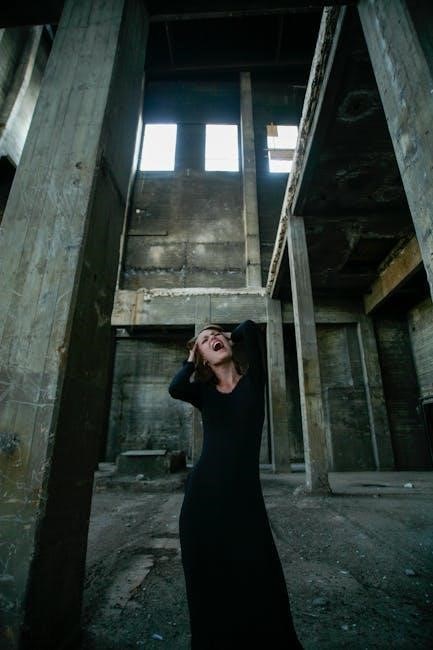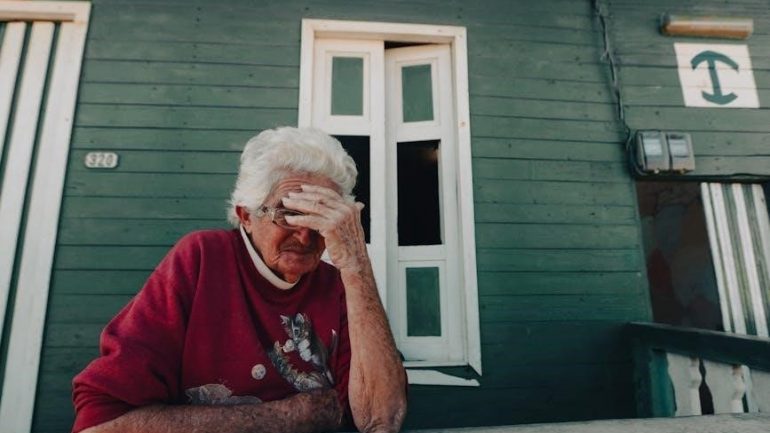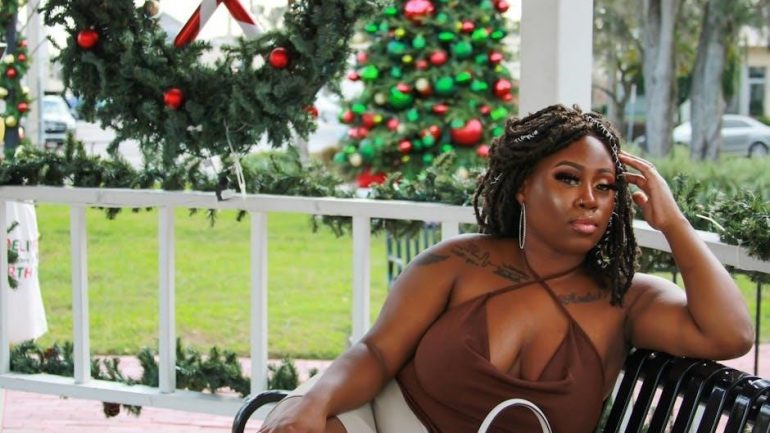In today’s chaotic world, anxiety has become a pervasive challenge, affecting nearly half of the U.S. population. Dr. John Delony, a renowned mental health expert, offers a practical model to transform lives through six intentional daily choices. His approach, rooted in research and personal experience, empowers individuals to break free from anxiety’s grip, fostering peace, resilience, and purpose. By understanding anxiety as a signal, not the enemy, readers can embark on a journey to build a life of calm and fulfillment.
Understanding the Prevalence of Anxiety in Modern Life
Anxiety has become a pervasive issue in modern society, with nearly half of the U.S. population reporting that their lives are significantly impacted by anxiety, stress, or burnout. This widespread struggle stems from the fast-paced, high-pressure environment we’ve created, where individuals often feel overwhelmed by demands at work, home, and socially. The constant barrage of stimuli, coupled with societal expectations, exacerbates feelings of inadequacy and fear. Anxiety is not just a personal issue but a cultural one, reflecting the imbalance between the demands of modern life and our ability to cope. By acknowledging the ubiquity of anxiety, we can begin to address its root causes and work toward building healthier, more resilient lives. Understanding this prevalence is the first step toward creating meaningful change and fostering a non-anxious life.
The Importance of Intentional Daily Choices
Intentional daily choices are the cornerstone of building a non-anxious life. By making conscious decisions, individuals can break free from the cycle of overwhelm and stress that modern life often imposes. These choices, rooted in self-awareness and purpose, help create a foundation of calm and resilience. Dr. John Delony emphasizes that small, consistent actions—such as prioritizing health, fostering meaningful connections, and practicing mindfulness—can lead to profound changes over time. Intentional living allows individuals to reclaim control over their lives, moving away from reactive patterns and toward proactive, anxiety-reducing habits. By focusing on what they can control, people can navigate life’s challenges with greater ease and confidence, fostering a sense of peace and fulfillment. These daily decisions are not just about managing anxiety but about creating a life that aligns with one’s values and aspirations.

The Six Daily Choices for a Non-Anxious Life
Dr. John Delony outlines six transformative daily choices: reality, connection, freedom, health, mindfulness, and belief. These intentional practices empower individuals to reduce anxiety and build a life of peace and purpose.
Choosing Reality: Understanding and Accepting Life’s Challenges
Choosing reality involves acknowledging life’s challenges without resistance. Anxiety often stems from fighting or denying difficulties, but acceptance allows us to respond rather than react. By recognizing that life is not always easy, we can embrace its unpredictability and stop demanding perfection. This choice encourages us to let go of the need to control everything and instead focus on what we can influence. Accepting reality reduces anxiety by aligning our expectations with the world’s natural ups and downs. It fosters resilience and clarity, enabling us to face challenges with courage rather than fear. This foundational choice is the first step toward building a non-anxious life, as it cultivates a mindset of peace and authenticity.
Choosing Connection: Building Healthy Relationships
Choosing connection emphasizes the importance of building and nurturing healthy relationships to reduce anxiety. Anxiety often thrives in isolation, making meaningful connections crucial for emotional well-being. By prioritizing relationships with family, friends, and community, we create a support system that helps us navigate life’s challenges. Healthy relationships provide a sense of belonging and security, reducing feelings of loneliness and overwhelm. Dr. John Delony highlights that genuine connections require effort, empathy, and vulnerability. By investing in others and fostering trust, we build a network of supportive relationships that counteract anxiety. This choice encourages us to move away from self-reliance and toward interdependence, recognizing that strong relationships are foundational to a non-anxious life. Cultivating these connections requires intentional communication and a willingness to show up for others, fostering a sense of unity and shared strength.
Choosing Freedom: Letting Go of Toxic Patterns
Choosing freedom involves breaking free from toxic patterns that fuel anxiety and hinder personal growth. Many people are trapped in cycles of self-defeating behaviors, negative thought patterns, or unhealthy habits that perpetuate anxiety. Dr. John Delony emphasizes that true freedom begins with self-reflection and accountability. By identifying and confronting these patterns, individuals can release themselves from the mental and emotional chains that bind them. This choice requires courage to face painful truths and take responsibility for one’s actions. Letting go of toxic behaviors opens the door to emotional liberation, allowing individuals to live more authentically and experience lasting peace. Freedom is not the absence of challenges but the ability to respond to life without being controlled by anxiety or destructive habits. It is a daily commitment to choosing health, joy, and wholeness over cycles of toxic behavior.
Choosing Health: Prioritizing Physical and Mental Well-being
Choosing health is a cornerstone of building a non-anxious life, as physical and mental well-being are deeply intertwined. Neglecting one often exacerbates anxiety in the other. Dr. John Delony stresses the importance of adopting healthy habits, such as a balanced diet, regular exercise, and sufficient sleep, to create a strong foundation for emotional resilience. Additionally, mental health practices like therapy, mindfulness, and journaling can help individuals process emotions and reduce anxiety. By prioritizing health, individuals empower themselves to face life’s challenges with greater calm and clarity. This choice is not about perfection but consistency—small, intentional steps toward holistic well-being can lead to significant long-term changes. Health is the fuel for a non-anxious life, enabling individuals to respond to stress with strength rather than becoming overwhelmed by it.
Choosing Mindfulness: Staying Present in a Chaotic World
Choosing mindfulness is a powerful way to anchor yourself in the present moment, even amidst life’s chaos. Dr. John Delony emphasizes that mindfulness is not about achieving a perfect state of calm but about fostering awareness of your thoughts and emotions. By practicing mindfulness, individuals can break the cycle of worry and fear, which often fuels anxiety. Simple techniques like meditation, deep breathing, or grounding exercises can help calm the mind and reduce emotional reactivity. Mindfulness also encourages gratitude and appreciation for life’s small joys, shifting focus from anxiety to contentment. Regular mindfulness practice strengthens emotional resilience, allowing individuals to navigate challenges with greater clarity and peace. It’s a daily choice that transforms chaotic moments into opportunities for growth and calm.
Choosing Belief: Cultivating Faith and Purpose
Choosing belief is a transformative step toward a non-anxious life, as it provides a foundation of hope and meaning. Dr. John Delony highlights the importance of cultivating faith, whether in a higher power, personal values, or life’s purpose, to navigate uncertainty with confidence. Belief helps individuals move beyond fear and doubt, fostering resilience and clarity. By identifying and aligning with core beliefs, people can make decisions that bring fulfillment and reduce anxiety. This choice also encourages gratitude and trust, shifting focus from life’s challenges to its possibilities. Regular reflection, prayer, or journaling can deepen this practice, providing a sense of control and hope. Ultimately, choosing belief empowers individuals to face life’s uncertainties with courage and purpose, creating a life rooted in faith and direction.
Practical Steps to Implement the Six Choices
Start with small, intentional actions, such as creating a daily routine that incorporates the six choices. Set achievable goals and track progress to maintain consistency and momentum over time.
Creating a Daily Routine for a Non-Anxious Life
Establishing a consistent daily routine is foundational to reducing anxiety. Begin with a morning practice, such as journaling or meditation, to set a calm tone. Incorporate physical activity, like a walk or yoga, to release tension. Prioritize healthy meals and hydration to fuel your body and mind. Schedule time for meaningful connections with loved ones or friends to strengthen relationships. In the evening, wind down with activities like reading or a relaxing bath to prepare for restful sleep. Avoid screens before bed to improve sleep quality. Integrate moments of mindfulness throughout the day to stay present and centered. Consistency in these habits helps create a sense of control and reduces anxiety, fostering a peaceful and intentional life.
Overcoming Obstacles to Consistent Practice

Consistently practicing the six daily choices requires effort and resilience, especially when faced with obstacles like lack of time, motivation, or life’s unpredictability. Start by identifying your most common challenges and develop strategies to address them. Simplify your routine to make it manageable, even on busy days. For example, a brief mindfulness moment or a short walk can substitute for longer practices when time is scarce. Set realistic expectations and remind yourself that perfection is not the goal—progress is. Lean on supportive relationships or community groups for accountability and encouragement. Celebrate small wins to stay motivated and redefine failure as an opportunity to learn and grow. By addressing obstacles proactively and maintaining a growth mindset, you can sustain your practice and continue building a non-anxious life.

Maintaining a Non-Anxious Lifestyle
Maintaining a non-anxious lifestyle requires consistent practice, community support, and regular self-assessment. Surround yourself with encouraging relationships and stay committed to your daily choices to sustain peace and resilience over time.
The Role of Community and Support Systems
Community and support systems play a vital role in maintaining a non-anxious lifestyle. Surrounding yourself with encouraging relationships provides emotional support and accountability, helping you stay committed to your daily choices. Having a supportive network can offer practical advice, shared experiences, and motivation, especially during challenging times. Dr. John Delony emphasizes the importance of building healthy relationships to foster resilience and peace. By engaging with others who align with your values and goals, you create a safe space to grow and thrive. Strong social connections not only reduce feelings of isolation but also reinforce the mindset needed to sustain a non-anxious life. Investing in meaningful relationships is a cornerstone of long-term mental and emotional well-being.

Regular Self-Assessment and Growth
Regular self-assessment is crucial for sustaining a non-anxious life. By evaluating your progress and identifying areas for improvement, you can refine your daily choices and strengthen your resilience. Dr. John Delony suggests reflecting on your commitment to reality, connection, freedom, health, mindfulness, and belief. This practice helps you recognize patterns, celebrate successes, and address challenges. Growth emerges from this process, allowing you to adapt and evolve. Periodically assessing your mental and emotional state ensures you remain intentional about your journey. Through self-awareness and continuous learning, you cultivate the tools needed to navigate life’s uncertainties with calm and confidence. Regular self-assessment fosters a mindset of growth, enabling you to embrace challenges as opportunities for development rather than sources of anxiety.




